Album review: Gurrumul’s orchestral work Banbirrngu ‘a continuing celebration’
These arrangements are minimal, creating an almost meditative effect and placing the spotlight squarely on his voice, while highlighting the importance of his music within Australian culture.
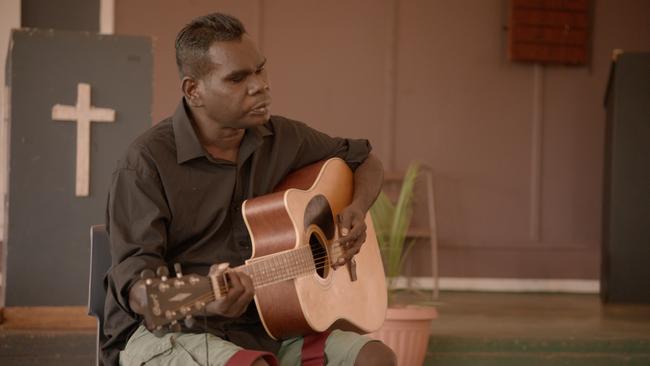
Album reviews for week of December 20 2024:
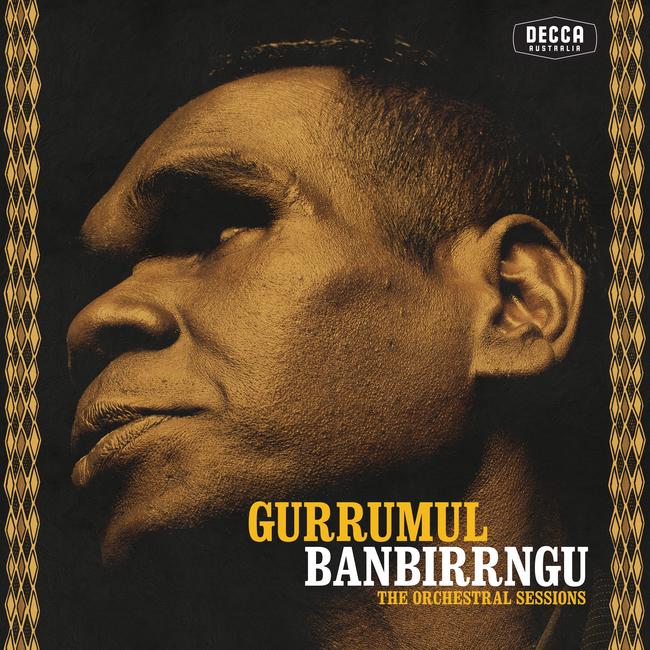
FOLK/ORCHESTRAL
Banbirrngu – The Orchestral Sessions
Gurrumul
Decca/Universal Music Australia
There’s no denying the impact Geoffrey Gurrumul Yunupingu has had on Australian music – and, by extension, Australian culture – since he emerged from the group dynamic of Yothu Yindi and then Saltwater Band and struck out solo in 2008. His eponymous debut was heard around the world and heralded the arrival of an artist possessed of something special, a man with the voice of an angel and an outlook so free of clutter and so pure that he presented as almost otherworldly. More albums followed, of course, tours around the world, acclaim from any and all before Yunupingu’s time was cut short in 2017, mere weeks after completing his fourth record, Djarimirri, which was released posthumously the following year. That chart-topping album was a departure for Yunupingu in that it featured instrumentation from members of both the Sydney Symphony Orchestra and the Australian Chamber Orchestra, as opposed to the simple acoustic guitar-backing he’d employed over his first albums – Yunupingu, over time, had come to love the power and emotion that orchestras were able to contribute to his singing, and so he’d collaborated with a number of them, all over the world, positioning him as an artist able to straddle multiple, often conflicting, worlds: “[He] always sat in some sort of alternative genre,” muses Yunupingu’s long-time friend and label-boss Michael Hohnen. “For me, he’s an international classical crossover artist.”
Which brings us to where things are now, with the release of another posthumous album in Banbirrngu: The Orchestral Sessions. Recorded with the Prague Metropolitan Orchestra, the album is essentially the finishing of some existing business, songs featuring the SSO that had been recorded a number of years ago, now reimagined in Prague under the watchful eye of both Hohnen and arranger Erkki Veltheim (who worked on Djarimirri). Featuring songs from all four of his previously released records (and using those same vocal tracks), Banbirrngu looks to present them in a different light, as something away from their original form highlighting Yunupingu’s legacy and the importance of his music within Australian culture as a whole. The orchestral instrumentation across the album is extremely minimal, creating an almost meditative effect and placing the spotlight squarely on Yunupingu’s voice as he moves through the likes of Bapa, Djilawurr, Wiyathul — which was perhaps the entry point for his music for most people, given it was the first track from his debut album in 2008. Also included is the ethereal Amazing Grace, sung in language as all Yunupingu’s work was; this version, with the orchestra in the background, is truly breathtaking. And so while all these songs have been previously released, and while Yunupingu has indeed worked within the orchestral realm before, Banbirrngu acts as a vessel of reimagination, a continuing celebration of a unique artist, one of the most special to ever come out of this country.
Samuel J. Fell

ROCK/POWER POP
This One’s For The Old Headz
Ben Lee
Weirder Together
In seeking to move forward, Ben Lee has chosen to look back. And in doing so, not only is Lee — one of the country’s more prolific and respected pop/rock purveyors — looking to appeal to the ‘‘old headz’’, but also the younger ones as he plumbs the depths of the fuzzy-guitar, harmony-laden 90s era and melds it with a lyrical sensibility that is so very much now. As he’s said regarding his 15th album, it’s “a spirited, energetic exploration of getting older while staying true to your punk spirit”. It’s also an aesthetic he pulls off with aplomb: beginning with a near-perfect slab of pop/rock ‘n’ roll in The Way We Were, the album jangles its way through Heavy Metal, the irresistibly catchy Bad Luck and the upbeat folky pop of Positive Energy. It’s mostly loud guitars and harmonies, a la bands like The Replacements and Lemonheads, but it quietens as it comes to an end (as do most old headz, to be honest), by finishing up with the echoey, droning crescendo of Gimme Honey. This track caps an album that’ll no doubt appeal to all the headz, both old and new.
Samuel J. Fell
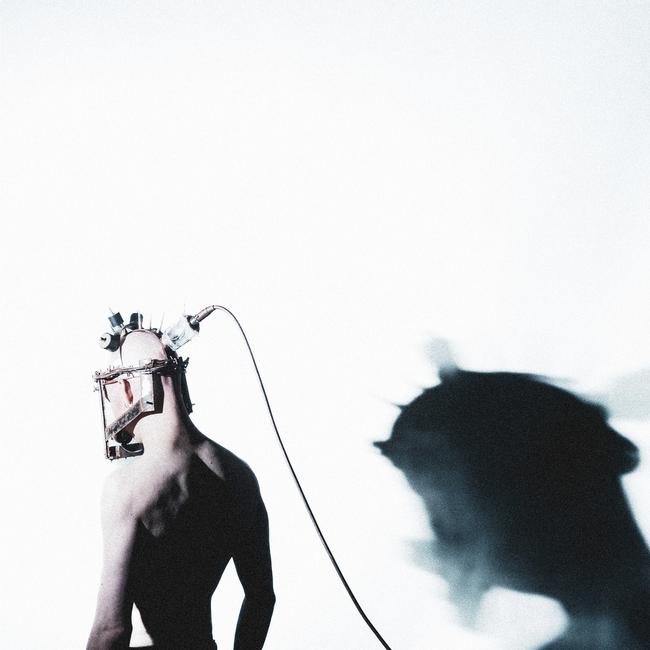
METALCORE
What I’ll Leave Behind
Void of Vision
UNFD
On its fourth album, Melbourne metalcore four-piece Void Of Vision elevates its trademark soundscapes. Having maintained an impressive live reputation across the past decade, What I’ll Leave Behind exudes untapped rawness and unbridled energy. Spanning themes of life and mortality, the album is a collection of material that stretches and grasps for a sense of balance and peace. Frontman Jack Bergin’s health battles, namely discovering an arteriovenous malformation in his brain — followed by surgery and treatment — provide the bed of lyrical inspiration. Here, we receive honest observations on trauma, recovery and accepting a new normal. Musically, What I’ll Leave Behind matches brutality (Blood For Blood, Gamma Knife) with a blend of rhythms and crushing riffs that have an air of rejuvenation threaded throughout (Supernova, Beautiful Things). With his bandmates James McKendrick, Mitch Fairlie and George Pfaender, Bergin has entered a new phase, redefined. With undeniable chemistry, Void offers a prime example of modern heavy music surging forward.
Sosefina Fuamoli

POP
143
Katy Perry
Capitol Records
Much print ink has been devoted to unravelling the curious case of Katy Perry’s career. This is an artist who released one of the most impactful pop albums of the 21st century with 2010’s Teenage Dream, which made her one of the biggest superstars on the planet. Songs like the title track, California Girls and Firework are still ubiquitous, and she quickly followed that success with another hit, 2013’s Prism. Nearly everything she touched turned to gold — until suddenly, and appropriately, it didn’t. Sensing that her era of dominance was over, she embarked on a desperate, bewildering album campaign around 2017’s Witness, followed by 2020’s lacklustre Smile. For years now Perry has been grasping at relevance, swinging blindly for the fences in the hope that something connects. Unfortunately for Perry, 143 is another fail. It’s a set of boring, forgettable dance-pop tracks produced by the controversial Dr. Luke. Perry has said the record is not meant to be “that deep”, which is fine and certainly not a prerequisite for a great pop record — but 143 simply isn’t anything at all. At worst, it’s openly cringeworthy (Woman’s World), while at best it sounds like a reheated David Guetta track (Lifetimes). There isn’t a spark on this album, much less a firework.
Jules LeFevre
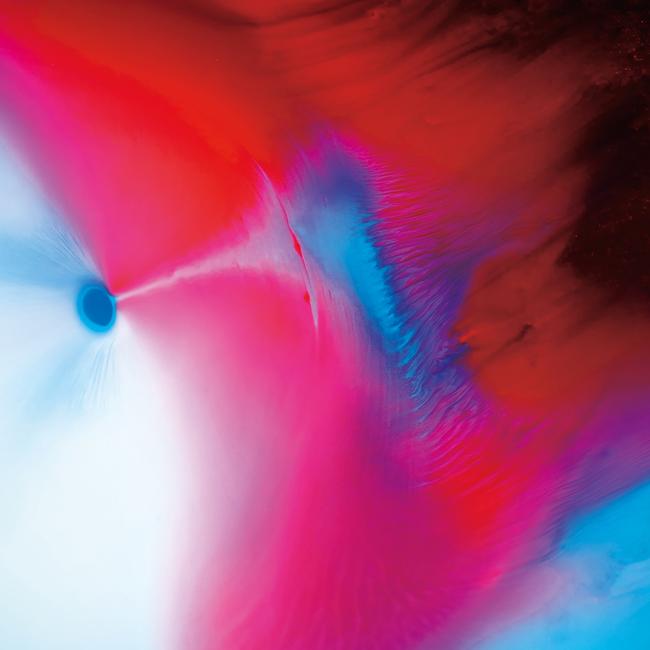
ELECTRONIC
Cascade
Floating Points
Ninja Tune
Sam Shepherd is a musical chameleon who’s equally equipped to compose ballet scores and collaborate with orchestras as he is bending festival crowds to his whim via pulsating techno-inspired DJ sets. On Cascade, it’s the dancefloor on the Brit’s mind. The Mercury Prize-nominated producer has delivered an album of glitchy melodies, intricate drum patterns and restless, body-moving rhythms. It’s quite a departure from the experimental stylings of 2019’s Crush. The album is also a hometown ode to Manchester, with tunes like the pounding Key103 named after an underground radio station, and others reflecting a rich musical heritage that this neuroscience PhD-holder seems intent on both preserving and expanding upon. Afflecks Palace revels in throwback rave territory via modular synths and urgent, distorted beats, while Birth4000 builds atop a stuttering, engine revving-like synth line before exploding into a snarling, dirty beat. Elsewhere, Fast Forward, at nearly eight minutes, sees Shepherd flex his production muscles in swirling, giddy glory, with Caribou providing added shine on drums. A harpist anchors the similarly long Ocotillo, and only during ambient closer Ablaze can you finally take a breath. Strap yourself in.
Tim McNamara
Album reviews for week of December 13 2024:

NU-METAL/ROCK
From Zero
Linkin Park
Warner Music
It is easy to forget that Linkin Park was once, by the numbers, one of the biggest bands on the planet. With multiple diamond certifications to its name and the highest-selling record of 2001 in its debut Hybrid Theory, the impact of this quintet’s cocktail of nu-metal, soaring emotional rock hooks and hip-hop elements can still be felt across the musical spectrum. Few reasonably expected the band to continue after the tragic 2017 suicide of Chester Bennington, the frontman and arguably emotional core of the group. But here it is seven years later, with a new singer and suite of songs that seem stuck in a formula the band had long since left behind before Bennington’s death that will offer fans more confusion than comfort. To effectively discuss a band like Linkin Park in the current context is to acknowledge the inherent biases that plague any musical group that loses a core member. This is a protracted problem for a band as big as this, which finds itself in a unique struggle to overcome critiques around legacy and gender. Bennington has been replaced by Emily Armstrong, a rock vocalist with significant bona fides who appears to share her predecessor’s love of shredding her vocal cords for dramatic effect. Armstrong’s hiring led to the predictable level of vitriol online from purists who believe that rock bands started by men should always be populated by them. This is unwarranted; she is perfectly competent, as evidenced by her Betadine gargle-inducing performances across lead single The Emptiness Machine and album highlight Two Faced.
The issue with Armstrong is actually the band behind her writing the bulk of the record, which has lost not only Bennington but also its founding drummer. The splintering of the core outfit has led de facto bandleader Mike Shinoda to double down on what made the band famous, but no longer has any emotional heft: over-produced, sample-laced verses (IGYEIH) and overdriven, million-dollar choruses about being left behind, abused and underappreciated (Casualty). That this is not believable from a band of multi-millionaires would have probably still passed the pub test if the music was good. Instead, it rehashes the worst and most abrasive elements of nu-metal without any of the heart that endeared Linkin Park to a generation in the first place. Longtime followers will know that the band was always keen to push the boat out and experiment with the edges of its sound. That From Zero offers nothing new in this regard is perhaps the greatest snub to Bennington’s legacy, offering instrumental and vocal performances hidden beneath volume while playing it safe. This is the legacy problem writ large; if there were a new rock group pumping out face-melting slammers like Cut the Bridge, that would be fine, but Shinoda and co chose to reboot a band that has always been about more than rapping, screaming and power chords. The arrangements are vastly uninteresting, lapse into stadium rock half-time far too often and occasionally sound so much like old material that it makes the listener wonder if they’ve turned back the dial 20 years. It’s a shame for fans, but maybe it’ll make them some new ones.
Jonathan Seidler

ROCK
Rack
The Jesus Lizard
Ipecac/Liberator
The Jesus Lizard has long maintained a reputation for volatility, becoming an abrasive underground favourite before releasing a split single with Nirvana in 1993 and dissolving by that decade’s end. Yet the Chicago quartet has always been more about control than confrontation, as proven across its first album in more than a quarter-century. These songs are tight and succinct, thanks in part to guitarist Duane Denison’s prickly exactness. Indelible vocalist/actor David Yow also displays notable restraint with his spoken-word delivery on What If? and during the slow lurch of Armistice Day, though his lyrical scenery-chewing memorably contrasts with the unexpectedly pretty melodic motif on the closing Swan the Dog. For someone who mentions a human head popping like a blister at one point, Yow sounds oddly serene for the majority of the album. That makes it fun to hear him briefly grow more unhinged on Falling Down and match the bar-rock bluster of Dunning Kruger. For a band whose recorded story ended far too early, this rectification is long overdue.
Doug Wallen

INDIE ROCK
Majordomo
Teenage Dads
Chugg Records
Despite the fact it’s been six years since the release of this Victorian band’s debut, Teenage Dads have hardly been idle in the ensuing period, taking its brand of off-the-wall indie rock around the globe, garnering fans and culminating in a (seemingly slow-in-coming) breakthrough artist gong at 2023’s ARIA Awards. As such, there’s a bit of anticipation surrounding its second full-length release, all of which is justified as through 13 tracks the band showcase an astute melding of jangling indie pop, rock ‘n’ roll, tongue-in-cheek throwbacks and one-of-a-kind leap-forwards. Consequently, Majordomo is as fun a sonic time as you’ll find. Alongside singles Speedracer, I Like It, Tale of a Man and Weaponz, the Devo-esque Spiders and bouncing The Commander look back to the ‘80s while Boarding Pass jangles your brain: Jordan Finlay’s vocals swirl above it all, while Vincent Kenna’s drumming throbs beneath. Closing out with the supercharged sea-shanty feel of A Day in the Life of a No Good Pirate, Majordomo ticks all the boxes, justifying the aforementioned anticipation and then some.
Samuel J. Fell
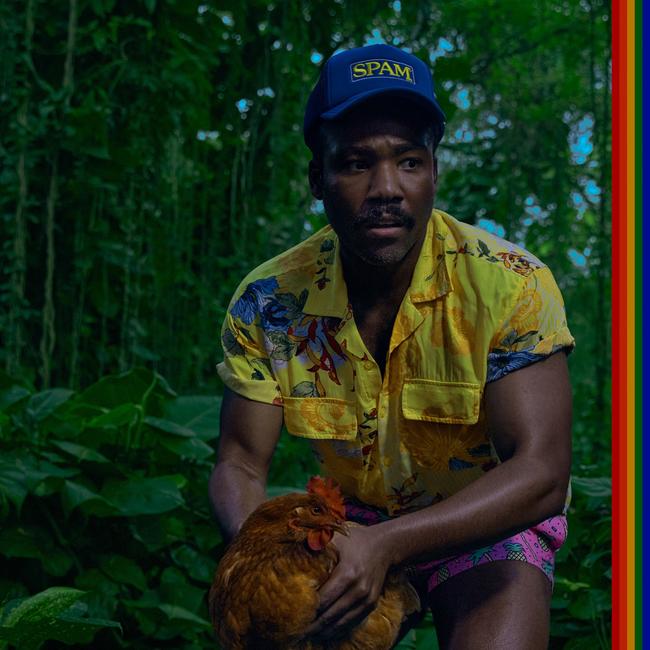
R&B
Bando Stone and the New World
Childish Gambino
mcDJ/Liberator Music
If Donald Glover had a dollar for every fake movie trailer he’d starred in, he’d have two dollars – which isn’t a lot, but it’s weird it happened twice. Following what ended up being a publicity stunt for 21 Savage’s latest, Glover released what appeared to be a preview of an accompanying film for his final album – some sort of post-apocalyptic thriller. It now seems said film is never actually coming – leaving us with, essentially, a soundtrack to nothing. Bando Stone is an erratic, eclectic hour, offering more confusion than clarity. It’s not meritless: there’s cinematic prog flair to Lithonia, and an electric Prodigy sample (Breathe) bouncing around Got to Be. With no source material to guide it, however, you’re clamouring for some kind of tether. Even Glover’s divisive 2013 concept album Because The Internet handled its throughline more tactfully. Following both the pandemic and his father’s death, Glover has been seeking closure on Childish Gambino as a project. Bando Stone, ultimately, is not the answer. Frustratingly, in fact, it only raises more questions.
David James Young
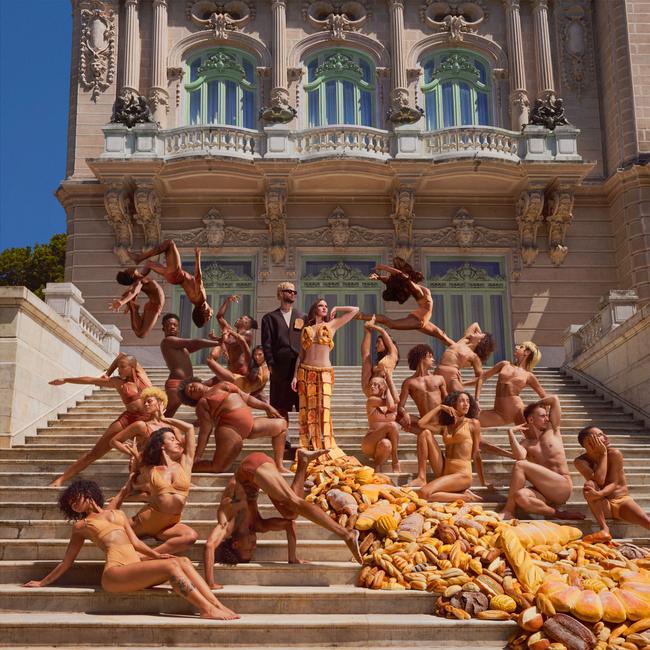
ELECTRONIC/POP
Bread
Sofi Tukker
Virgin
Titled as an acronym standing for “Be Really Energetic and Dance”, Sofi Tukker’s third album arrives with energy, playfulness and dancefloor kick baked-in – everything we’ve come to expect from the Grammy-nominated New York duo. Sophie Hawley-Weld and Tucker Halpern have been pumping out in-your-face party tunes for more than a decade, and its original, liberating and body-moving brand of worldly, vocal pop-electronica has attracted a global fanbase. The follow-up album to 2022’s Wet Tennis again channels Latin and Brazilian influences: Hawley-Weld sings in both Portuguese and English throughout, and the opening title track glides atop an upbeat horn section. Throw Some Ass, in contrast, is a bass-heavy anthem full of piercing synths, Brazilian drumbeats and funk influences. Jacare, meanwhile, combines pumping horns, keys and Latin house beats to form an album standout. Hey Homie sees Hawley-Weld’s vocal rise above a restrained breakbeat, while Spiral is a rare miss on an otherwise strong, immersive album. Cut yourself a thick slice of this.
Tim McNamara



